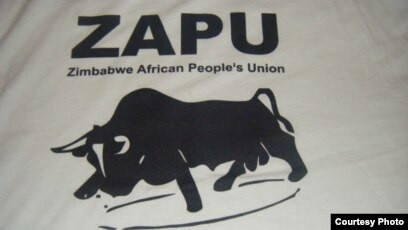
JUST as government officials may not fully understand what it takes to launch a business around complex food systems, private sector entrepreneurs may also struggle to master the fundamentals of community engagement.
This confirms the value of embracing multiple forms of knowledge when promoting public well-being through initiatives like improving the state of mass food markets.
More than infrastructure, policies, knowledge and information have sustained African territorial markets for decades.
It is information and knowledge which drive mass markets. More important is knowledge around commodities traded in these markets because without commodities there is no market. Given that traders do not exist in isolation, investors seeking to improve mass market infrastructure should first understand actors within the whole supply chain from production to consumption. From a food systems perspective, an ideal starting point is understanding commodities traded in the market and then move to making sense of who is specialising in particular commodities including the ages of the actors like traders, commodity sources, prices, volumes supplied, quality aspects and standards. All these details give value to commodities, translating to the value of the market. Unfortunately, most African countries are yet to fully invest in the power of knowledge and information, mostly possessed by supply chain actors like farmers, traders, herbalists and others.
African mass markets as public institutions that house private enterprises
Developers and financiers bringing capital to African indigenous mass markets have to understand that they are getting into an ecosystem with its own knowledge systems and ways of doing business. African mass markets can be characterised as public institutions that house private enterprises. This has implications on how social boundaries influence the way knowledge travels within the market as an ecosystem. Like every social system, each mass market has its own unique and self-reinforcing characteristics, practices and language. The fact that mass markets are public institutions that house private enterprises makes them unique and different from other institutions like corporates.
Beyond investing in infrastructure, investors into mass markets should make sense of diverse governance and management systems which underpin these markets. For instance, on one side is the public system comprising government and local authorities mainly responsible for governing space and infrastructure. Within the mass market institution are different systems such as political structures and governance systems like market committees. Just below that level are management systems for thousands of individual enterprises with each enterprise having its own different management system. Besides traders, the mass market has actors like farmers, transporters, employees and customers. This framework typifies African territorial markets which portray diverse stakeholders. However, these diverse roles and responsibilities have remained undocumented.
How knowledge within African territorial markets balance the economy with politics
- Ex-UK envoy roasted over ED links
- Business opinion: Branding in the age of entrepreneurship and industrialisation (Part 22)
- Business opinion: Branding in the age of entrepreneurship and industrialisation (Part 21)
- Business opinion: Branding in the age of entrepreneurship and industrialisation (Part 20)
Keep Reading
African territorial mass markets have become adept at balancing economic and political aspirations. In most cases, the political structure does not override the enterprise because the market is an economic entity which draws diverse people irrespective of political affiliations. Among the traders are traditional leaders like Chiefs but politics and social aspects like traditional leadership that are part of Africanness are silently embedded within the market. While totems may not have a role in Western markets like supermarkets, in African territorial markets traders and other actors greet each other using totems based on relationships. This confirms that these markets are not just areas where buyers and sellers of diverse commodities meet.
However, Western academic system is yet to find a definition that suits the Africanness of territorial markets. Each market has elements of a school, a university, a vocational training centre and a private company, among other aspects. It is an institution built on political, cultural and business all in one. That makes it a unique African institution able to build its own resilience and survive stiff competition from industrial institutions that receive policy support. In addition to economic elements, knowledge within African markets has political, social, technological and environmental dimensions that should be understood by whoever is trying to bring new interventions like new market designs into these markets. The social aspects cover questions like: What kind of ethics, culture, tradition and relationships are embedded in the markets? How are they sustained? What informs building of relationship? Is it political, business, home area, same totem? All these issues contribute to the identity and characteristics of the market. In addition to general practices on how the market works, there are embedded social guidelines that take care of social aspirations of the market actors, which, if not addressed, may lead to conflict or break down in relationships.
Political knowledge and information in the market include how political information is shared. How does the market detach commodities from politics? How do market actors ensure political structures do not compromise business in the market? Technological aspects relate to identifying technologies used in the market and how these add value to the market’s integral ecosystem. Environmental elements are about ensuring the market is conscious of the environment in terms of waste management, hygiene and cleanliness.
Importance of respecting multiple knowledges
Documenting all existing knowledge systems is fundamental in restoring knowledge and information that may continue to be lost due to absence of documentation. Without documentation, it is possible to lose pillars of the entire African indigenous market framework that has enabled these markets to survive colonialism, neo-colonialism and neo-liberal economies for decades. As demonstrated by the way African territorial markets work, tackling complex social problems like market failure requires the insights of people from wide-ranging areas of expertise. Architectural designers and engineers have to respect multiple forms of knowledge which are often ignored by technical experts. Listening to the voices of traders, farmers, transporters and other market actors can lead to more relevant solutions because these actors have valuable firsthand expertise.
- Charles Dhewa is a proactive knowledge broker and management specialist.










